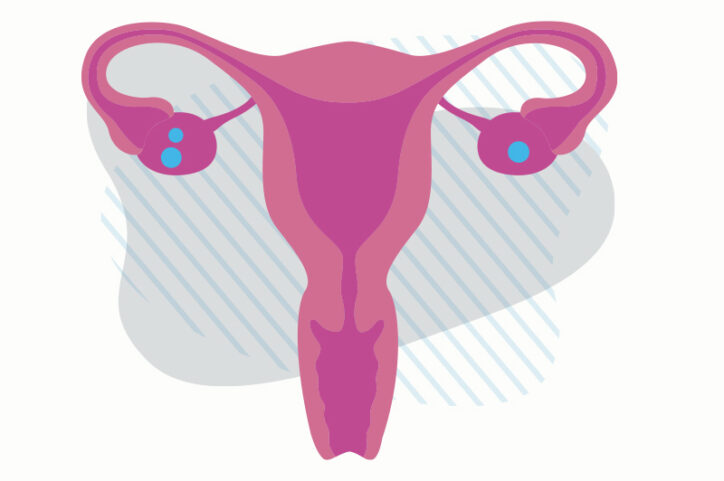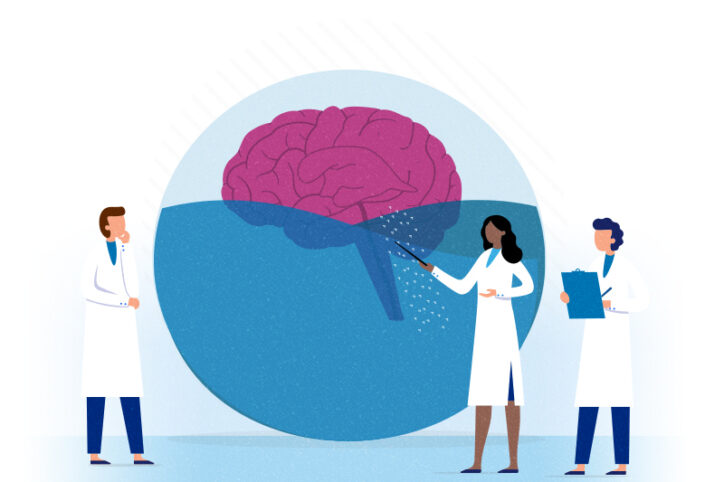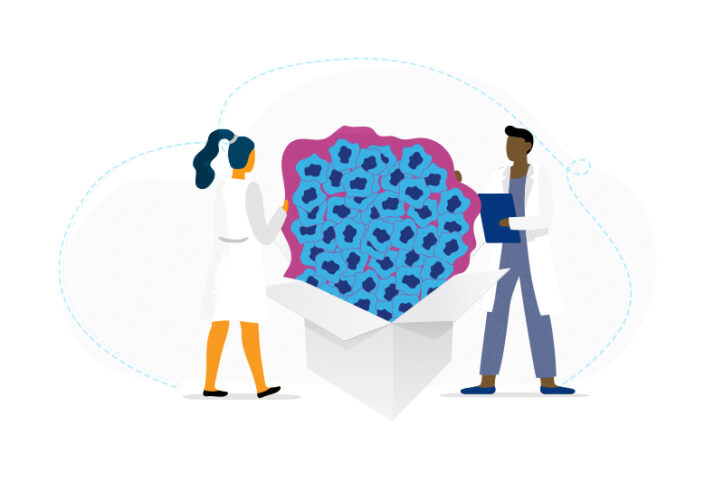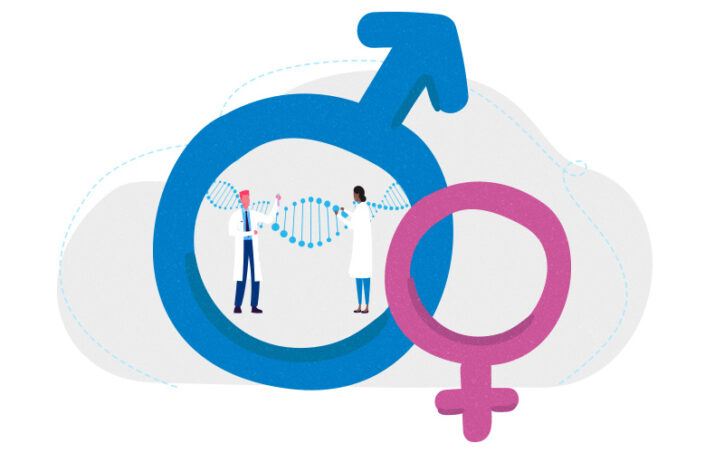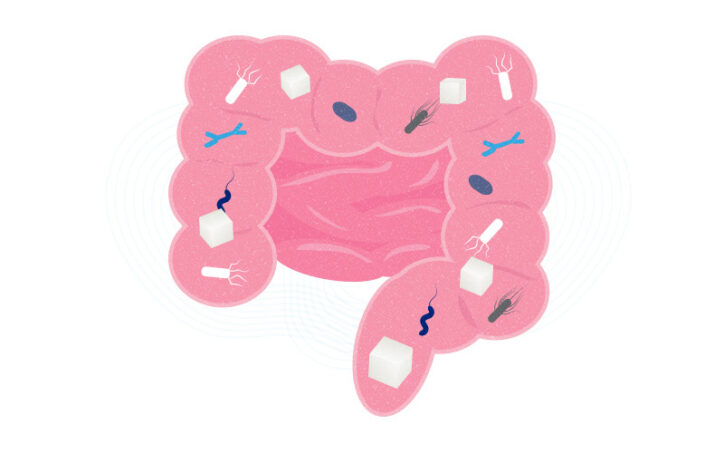Archive for metabolism
New genetic insights could change how we treat, and talk about, polycystic ovary syndrome
Polycystic ovary syndrome (PCOS) has long been viewed as a hormonal disorder affecting women of reproductive age. However, ongoing research led by Jia Zhu, MD, attending physician in the Division of Endocrinology, and her colleagues is changing that. Their most recent findings indicate that PCOS is part of a broader metabolic and reproductive disorder that ... Read More about New genetic insights could change how we treat, and talk about, polycystic ovary syndrome
Tagged: diabetes, endocrinology, metabolism, obesity
Phenylketonuria: Giving treatment a second chance
Phenylketonuria (PKU) was once a common cause of intellectual disability. Children born with this metabolic condition lack phenylalanine hydroxylase (PAH), the enzyme needed to break down the amino acid phenylalanine (phe). Instead, phe builds up to levels harmful to the brain. PKU was the original condition tested for when newborn screening was piloted in Massachusetts ... Read More about Phenylketonuria: Giving treatment a second chance
Tagged: genetics and genomics, metabolism, rare disease
Another angle on Alzheimer’s: CSF, proteomics, and metabolic enzymes
Currently there are no objective, easily assessed diagnostic markers for Alzheimer’s disease, and no good therapeutic options. Taking an agnostic approach, proteomics expert Hanno Steen, PhD, and neurobiologist Judith Steen, PhD, who share a lab at Boston Children’s Hospital, teamed up to analyze proteomics data from the cerebrospinal fluid (CSF) that bathes the brain, combining ... Read More about Another angle on Alzheimer’s: CSF, proteomics, and metabolic enzymes
Tagged: alzheimers disease, metabolism, neurology, neuroscience, proteomics
Conquering a rare metabolic condition: A family, a pediatrician, and two labs join forces
As a newborn, Sam Hoffman never cried or made a sound. His mother, Carolyn, often had to wake him up to feed him. He missed many of his infant milestones. At one visit, his pediatrician tapped his leg and couldn’t get a reflex. A urine test found extremely high levels of 4-hydrobutyric acid or GHB ... Read More about Conquering a rare metabolic condition: A family, a pediatrician, and two labs join forces
Tagged: epilepsy, gene therapy, metabolism, neurology, neuroscience, rare disease, stem cells
Going out of the box to tackle pancreatic cancer
Pancreatic cancers are deadly and hard to treat, in part because they are so often detected at an advanced stage; overall five-year survival rates are about 11 percent. Two separate labs at Boston Children’s Hospital took out-of-the-box approaches to this difficult cancer, and both uncovered some very promising leads. Wiping out pancreatic tumors’ immune defense ... Read More about Going out of the box to tackle pancreatic cancer
Genetic risk factors for PCOS act independently of ovarian function
It’s estimated that as many as 10 percent of women have polycystic ovary syndrome (PCOS), a hormonal condition that produces symptoms such as infertility, irregular menstrual periods, and excessive body hair growth. Women with PCOS are also at increased risk for cardiometabolic dysfunction, as evidenced by insulin resistance and obesity. Yet, despite extensive studies of PCOS, ... Read More about Genetic risk factors for PCOS act independently of ovarian function
Tagged: diabetes, endocrinology, metabolism, obesity
Sudden, unexplained child deaths often have a genetic cause
When a baby or toddler dies without warning, parents often blame themselves. A study at Boston Children’s may provide some insight into sudden, unexplained child deaths and perhaps a measure of closure. It suggests that at least 10 percent of children who die suddenly have an undiagnosed genetic condition that caused or contributed to their ... Read More about Sudden, unexplained child deaths often have a genetic cause
Shaping our intestinal microbiome: What makes certain microbes more ‘fit’?
We now know the microbes that live in our intestines — often called our microbiome — influence our health in many ways. The balance among competing microbial species is believed to contribute to inflammatory bowel disease (IBD), immune disorders, food allergy, neurodegenerative diseases, cancer, and more. The sugars in our diets, in turn, influence that ... Read More about Shaping our intestinal microbiome: What makes certain microbes more ‘fit’?
Low-carb or low-fat? Study pinpoints better diet
Despite the popularity of low-carbohydrate diets, health experts have pushed low-fat diets for the past 50 years, citing saturated fat as the main health risk. As a result, grocery shelves are stocked with low-fat and fat-free foods, many of which are high in processed carbs. Drs. David Ludwig and Cara Ebbeling, who co-direct the New ... Read More about Low-carb or low-fat? Study pinpoints better diet
Going into science: Women scientists at Boston Children’s offer advice to girls
In honor of the International Day of Women and Girls in Science (February 11), we invited women scientists at all stages of their careers at Boston Children’s Hospital to share their scientific agendas. Here is some of what they had to say. The scientists also offered their advice for girls interested in entering the field. ... Read More about Going into science: Women scientists at Boston Children’s offer advice to girls
Tagged: autism, blood, brain tumor, cancer, cellular and molecular medicine, epigenetics, epilepsy, family partnerships, genetics and genomics, hematology, hiv and aids, imaging, metabolism, neuroscience, newborn medicine, prematurity, psychiatry, pulmonology, rare disease, stem cells, traumatic brain injury


